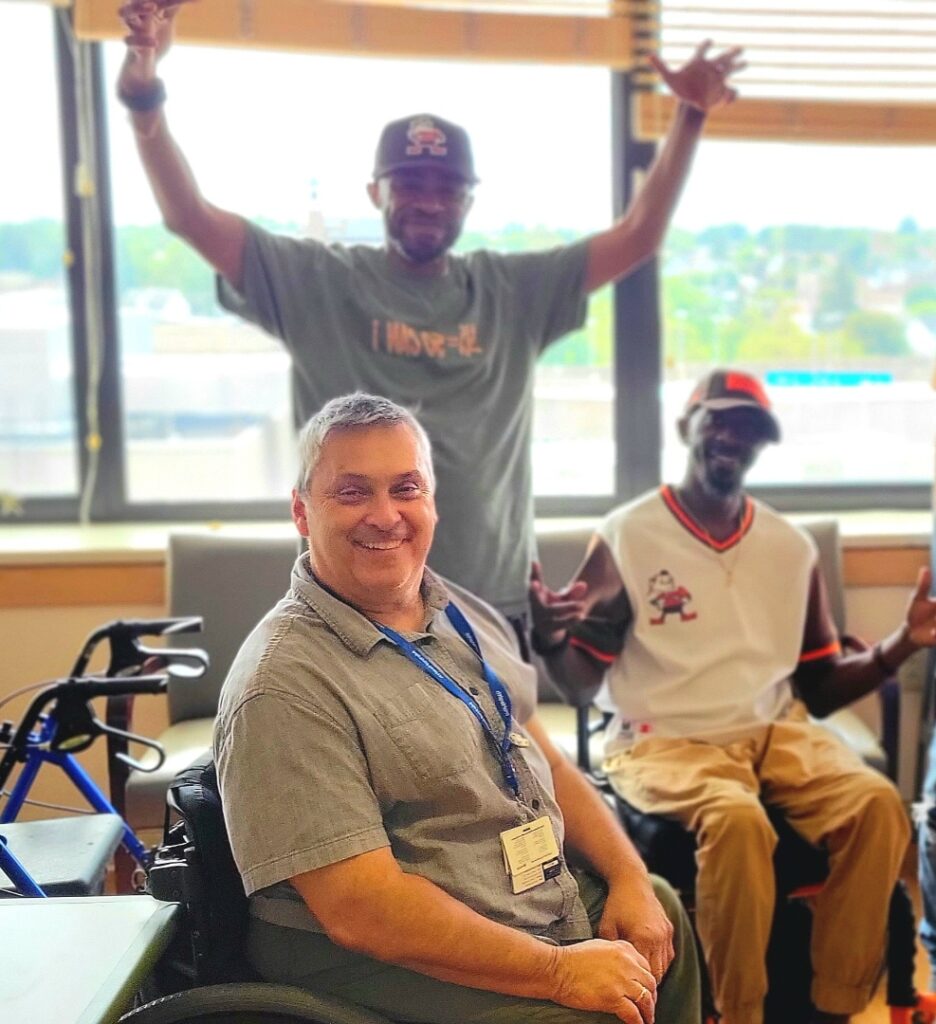When I was going through inpatient rehabilitation following my spinal cord injury (SCI), I had the opportunity to meet weekly with my recreational therapist and others going through rehab. During this meeting, we talked about life outside of the hospital walls. It was during these meetings that I got a true glimpse of what life would be like now that I was a wheelchair user.
Fast forwarding 15 years after my SCI, I was asked if there was anything that I would want to bring to the inpatient rehabilitation program as part of our Northeast Ohio Regional Spinal Cord Injury System (NORSCIS) research program. I knew exactly what I wanted to bring.
I wanted to create an educational series that taught essential skills to live a meaningful, fulfilled life after an SCI. Knowing I will never know everything, I also wanted to bring peer mentors to share their knowledge and experiences. That’s when Creating A New Normal (CANN) was born.
Creating A New Normal (CANN) was developed to bridge the gap between what is taught in the inpatient rehab setting and the life lessons learned post-rehab. We know doctors and therapists could never have the time to teach everything needed within the timeframe of a rehabilitation program. With that in mind, there are three main goals of this program:
- Share real, lived experiences from diverse backgrounds with different Peer Mentors each week
- Provide Resources, and
- Create a safe space to ask questions and share experiences

Each week, one of six topics is addressed with space for mentors to share their experiences and for individuals going through rehab to share and ask questions in a supportive environment. A disability can happen to anyone at any time in life. Research has shown that supportive environments promote positive adjustment following a spinal cord injury.
The six topics are rotated through, with the hope that each newly injured person receives most of these topics during their inpatient rehabilitation program. They may not start this program on “topic one,” but hopefully, they are still in rehab when topic one rolls around again.
The six topics are:
- Developing a Growth Mindset
- Community Integration & Resources
- Advocating For Yourself (in Healthcare & the Community)
- General Bowel & Bladder Maintenance
- Maintaining Skin Health
- Reducing Pain
CANN focuses on problem-solving skills. The “what if” questions. “What if I am out somewhere and xyz situation happens?” We talk about how some things can be prevented by preparation. For all the things that are not preventable, we talk about different ways that we (peer mentors) have handled the situation and what was learned.
This program also focuses on all the things we CAN do after SCI. Driving, playing sports, working, exercising, traveling, and getting out into the local community are some of the many topics we share stories around. Each participant also receives a NORSCIS Resource Guide that compiles state organizations, businesses, and agencies supporting those living with SCI. Clinical Care Research, Community Organizations, Education about Living with SCI, Equipment and Supplies, and General Resources are just some topics covered in this resource guide.
If you want to become a Peer Mentor, please email me, Megan Hammond, at mhammond1@metrohealth.org. I would love to keep expanding our “bank” of peer mentors and provide as much diversity as possible.
If you would like more information on anything I spoke about here, leave me feedback either here – below this post, e-mail me (thewheellifeblog@gmail.com), or on any of my social media platforms! (IG/TW/TT @megs_hammond). If there is ANYTHING that you want to hear about – please let me know! I can’t do this without YOU, so I would love to connect!
Let’s keep those happy thoughts, productivity, and self-care going! Until next time, live honestly, passionately, and with kindness! Take care!